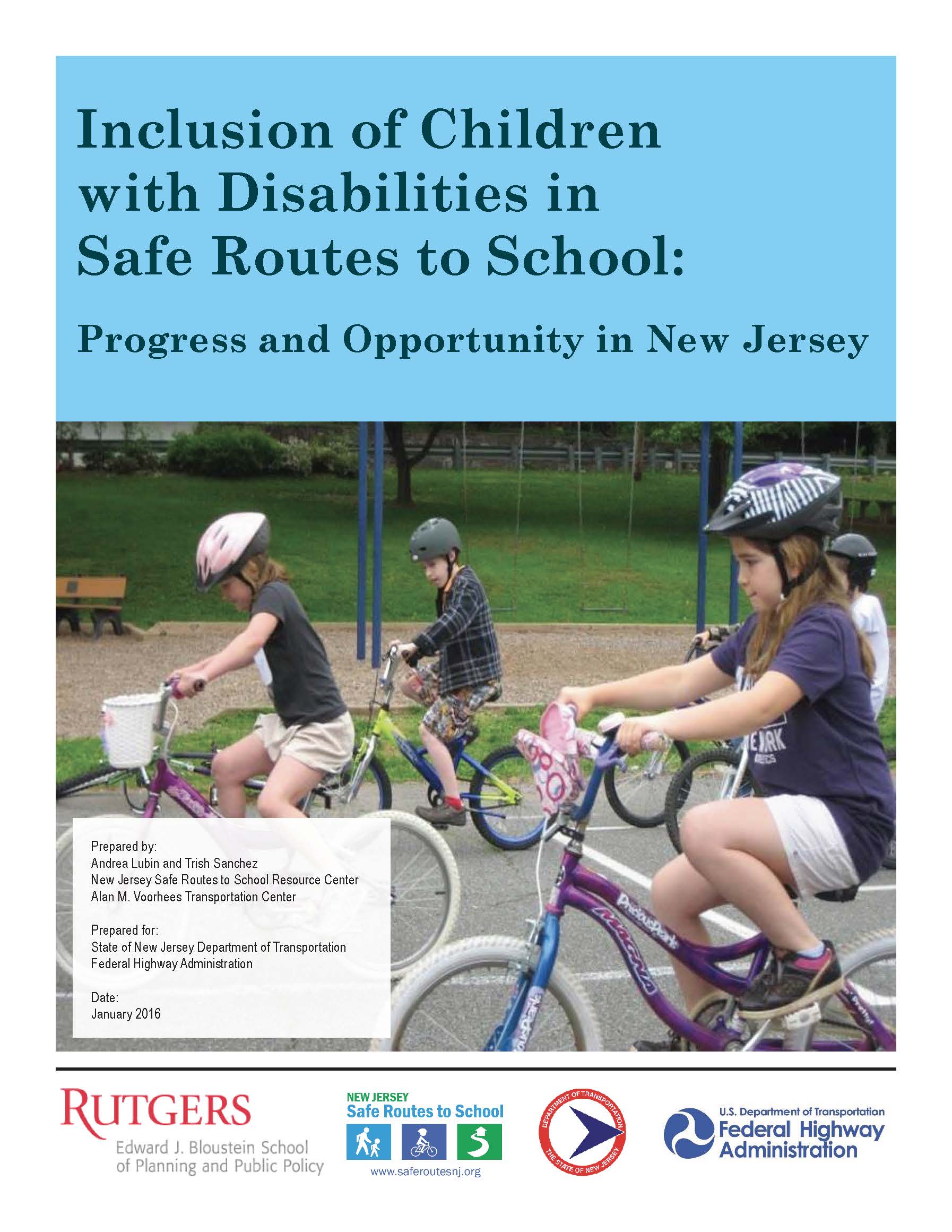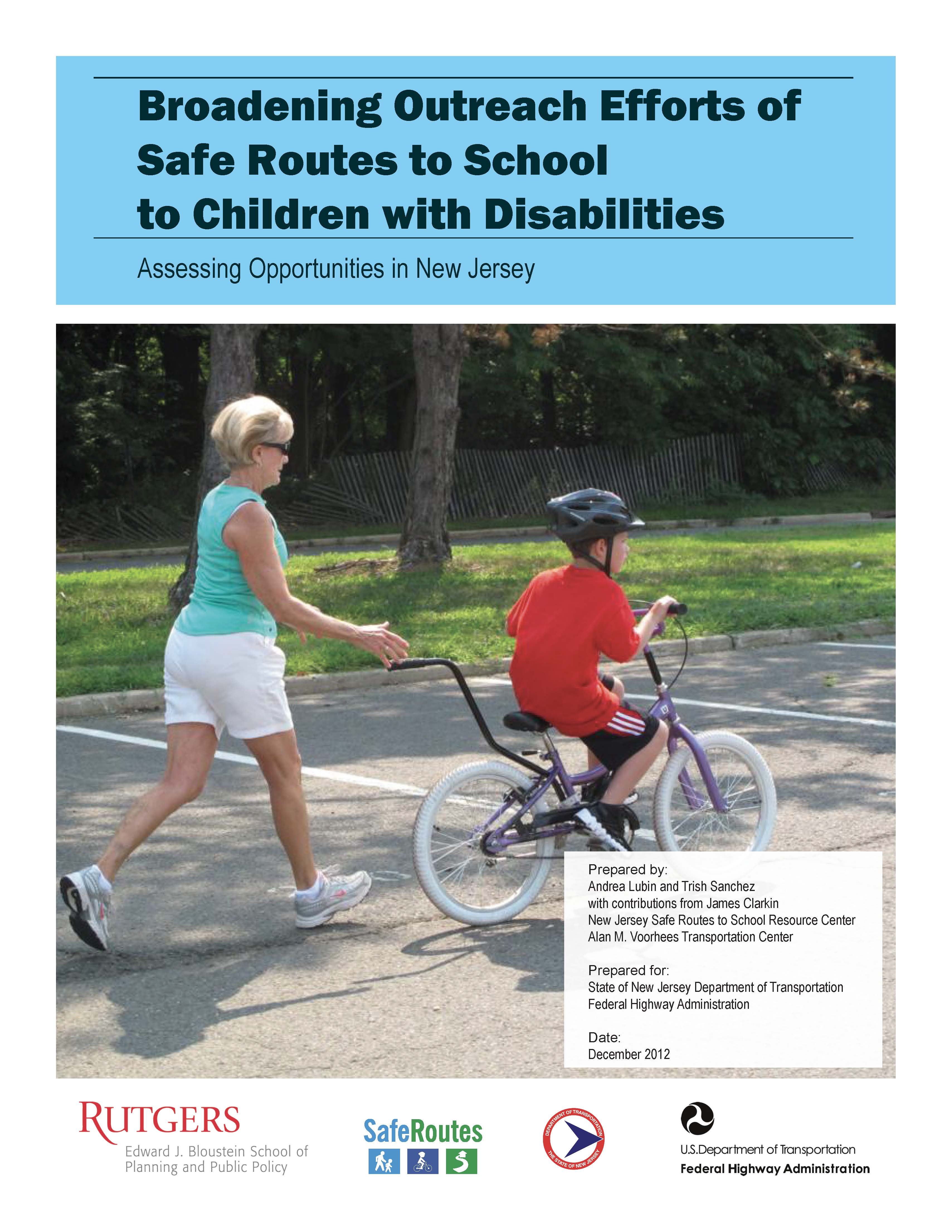Inclusion of Children with Disabilities in Safe Routes to School: Progress and Opportunity in New Jersey
The New Jersey Safe Routes to School (SRTS) Resource Center at the Alan M. Voorhees Transportation Center(VTC) at Rutgers University is committed to exploring and pursuing strategies to broaden Safe Routes to School activities and events to include children with disabilities more effectively.
To continue to advance the goal of SRTS inclusiveness in New Jersey, VTC has most recently pursued one of the key recommendations included in the report from December 2012, which is to educate and train regional SRTS Coordinators about the benefits of inclusive SRTS programs along with facilitating discussions with the SRTS Coordinators to develop strategies on how to successfully include more children with disabilities in SRTS activities statewide.
The intent of this report is to share highlights of the key topics discussed in the interview sessions and to propose next steps to be pursued by the VTC team, subject to approval from NJDOT, to assist the SRTS Coordinators as they pursue and implement more inclusive SRTS programs and events.
To read the full report: Inclusion of Children with Disabilities in Safe Routes to School: Progress and Opportunity in NJ
Broadening Outreach of SRTS to Children with Disabilities
Encouraging all children, including children with disabilities, to be physically active and participate in Safe Routes to School (SRTS) programs is a vital component of New Jersey SRTS and a specified goal in the federal legislation that created the program. Children today are less physically active than previous generations and childhood obesity has risen to the highest levels ever recorded in the past several years. Children with disabilities are at an even greater risk than their peers without disabilities primarily because they are not provided with as many opportunities to participate in physical activity. By including children with disabilities in SRTS, they not only can achieve important health benefits, but they also can gain independence by learning important life skills about safe walking and bicycling.
Understanding the categories of disabilities children face is important in determining effective strategies to include them in Safe Routes events and programs.
Staff at the Alan M. Voorhees Transportation Center conducted a series of interviews with key stakeholder organizations in the disability community to learn more about the active travel needs and issues associated with certain disability types, gather feedback on how to increase inclusion of students with disabilities in physical activities and SRTS and develop a core network of stakeholders in the disability community that can serve as a resource for advice and feedback.
Education and training about children with disabilities and the importance of inclusion can increase awareness and involvement of all children, especially children with disabilities, in physical activities and Safe Routes to School programs. Safe Routes Regional Coordinators will receive training on disability awareness and use this training to help ensure all children can participate in and benefit from SRTS events.
Read the complete report on Broadening Outreach Efforts of SRTS to Children with Disabilities


